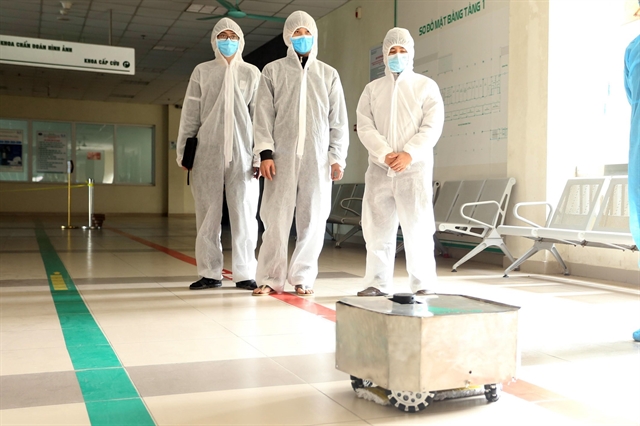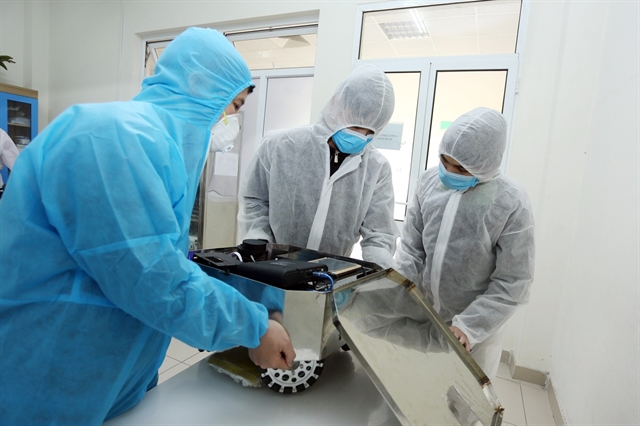 Society
Society


|
| Researchers from the National Centre for Technological Progress have developed a disinfectant robot to clean the floors at hospitals. — VNA/VNS Photos |
HÀ NỘI — Researchers from the National Centre for Technological Progress have developed a robot that can disinfect large surfaces quickly to support Việt Nam’s fight against COVID-19.
The robot named NaRoVid1 is designed to sanitise the surfaces of hospital rooms. It has been put into trial operation at the National Hospital of Tropical Diseases No2 in Hà Nội’s Đông Anh District since April 15.
NaRoVid1 is the disinfection product the Ministry of Science and Technology assigned the National Centre for Technological Progress to complete in more than two weeks.
The robot can move automatically and avoid all obstacles on the way while sanitising large floor surfaces quickly. It can operate for two hours continuously with its 10-litre tank of disinfectant solution.
It can also move under the patient's bed and into every corner of the hospital room to clean and disinfect the floor. The robot can move around flexibly by the operator and automatically return to the charging position after finishing its job.

|
| The robot named NaRoVid1 can operate for two hours continuously with its 10 litres of disinfectant solution. |
Mai Anh Tuấn, head of the research team, said the design of the robot was based on the suggestions of doctors with the rounded shape made from hygienic materials.
The robot would be sterilised during the course of disinfection spraying operation. The interior of the robot would be disinfected by UV rays.
Tuấn affirmed this was a new feature that ensured proper infection control procedures.
Tuấn said that the team would continue to improve the robot to better meet the actual operation process.
The centre would coordinate with the production units to transfer technologies, make plans to produce robots in large quantities to aid cleaners at quarantine areas of hospitals. — VNS




